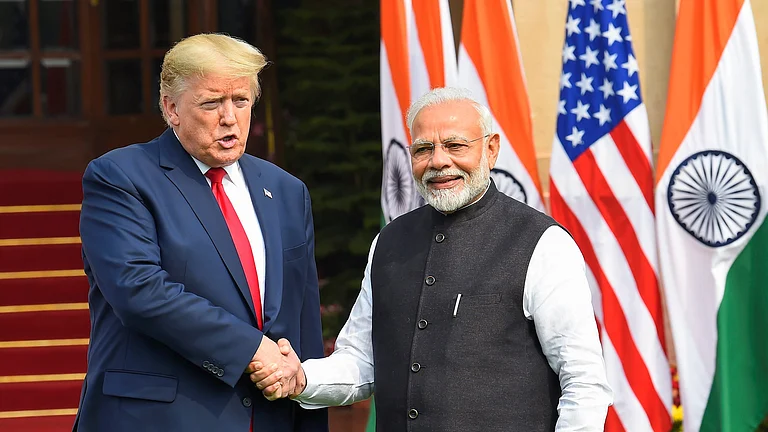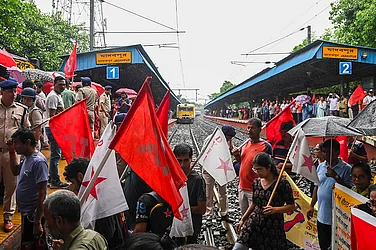The arrest of Khurram Parvez, the noted human rights activist from Jammu and Kashmir, on Monday evening, has come as a shock to many and a clear signal of the centre’s continued scrutiny of the valley. In light of the arrest, human rights bodies the world over have slammed the move and sought the immediate release of the activist.
“I’m hearing disturbing reports that Khurram Parvez was arrested today in Kashmir & is at risk of being charged by authorities in #India with terrorism-related crimes. He’s not a terrorist, he’s a Human Rights Defender,” Mary Lawlor, UN Special Rapporteur on Human Rights Defenders tweeted.
The World Organisation Against Torture (#OMCT) - Global network of over 200 NGOs fighting for Human Rights and against torture, said rights defender Khurram Parvez was detained for questioning after his house and office were raided by National Investigation Agency officials. ”We are deeply concerned about the high risk of torture while in custody. We call for his immediate release.”
“The UAPA is being repeatedly misused to punish human rights activists or others that protest abuses. Authorities should end repressive policies in #Kashmir, and hold to account those responsible for rights violations instead of targeting rights defenders,” said Meenakshi Ganguly, South Asia director, Human Rights Watch.
Amnesty International also reacted to the development. In n official statement, the human rights body said, "The arrest of Kashmiri activist Khurram Parvez is yet another example of how anti-terror laws are being misused to criminalize human rights work & stifle dissent in India. Instead of targeting HRDs, authorities should focus on bringing accountability for human rights violations".
Parvez was arrested by the National Investigation Agency (NIA) on Monday evening after raiding his residence and office in Srinagar earlier in the day. Parvez has been booked under 120B, 121 and 121A of IPC and sections 17, 18, 18B, 38 and 40 of Unlawful Activities Prevention Act (UAPA) Act, 1967.
The NIA officials carried out searches at the residence of Parvez at Sonwar area and office at Amira Kadal before taking him along for questioning to the NIA office at Church Lane in Dalgate. During the raid, according to the family, the NIA team seized Parvez’s phone, laptop and other belongings. The NIA was assisted by Jammu and Kashmir Police and the paramilitary forces.
After the search, Parvez was called for questioning at the NIA office in the afternoon and then at around 6 pm, the family received the call to bring his clothes. His wife and kids took the clothes. Later they were handed over his arrest memo under case number 30/2021. In October 2020, NIA conducted raids at several locations in the valley including Parvez’s residence and office and took away the phones and laptops of Parvez and his family members.
In 2016, Parvez was booked Public Safety Act (PSA) and was released after 76 days in prison. he activist has been a prominent face in the Valley’s human rights scene for the past two decades. In 2004, Khurram lost his left leg when an IED exploded under his car while he was travelling with his team to North Kashmir to monitor the election. His close colleague Aasia Jeelani died on the spot and Parvez suffered serious injuries.
His arrest is seen as part of the centre’s policy to use tough measures to curb any dissent. In 2015 he was instrumental in helping prepare a comprehensive 800-page human rights report titled ‘Structures of Violence’ which documented the extra-judicial killings of 1080 people and enforced disappearances of 172. The document identified 972 alleged perpetrators which included 464 army personnel, 161 paramilitary personnel, 158 Jammu and Kashmir Police personnel and 189 government gunmen.


























